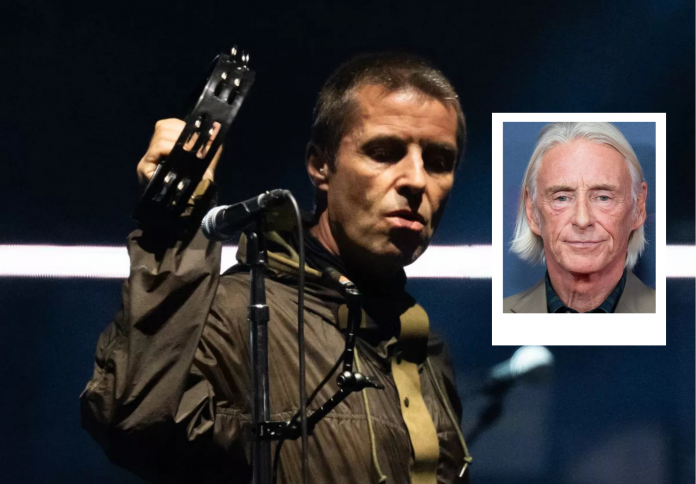In a vividly unsettling yet surprisingly poignant recollection, Paul Weller, the legendary frontman of The Jam and the Style Council, revealed that he was once lunged at by a lion—much younger and smaller at the time—while being driven to an early gig. The encounter occurred in the back of a Transit van, where the wild animal had been riding shotgun. Reflecting on that surreal moment brings humor, shock, and humanity—but also grief, as Weller expressed regret over never reconnecting with his former bandmate before friendship and time slipped away.
An ordinary day, an extraordinary hazard
In a vividly unsettling yet surprisingly poignant recollection, Paul Weller, the legendary frontman of The Jam and the Style Council, revealed that he was once lunged at by a lion—much younger and smaller at the time—while being driven to an early gig. The encounter occurred in the back of a Transit van, where the wild animal had been riding shotgun. Reflecting on that surreal moment brings humor, shock, and humanity—but also grief, as Weller expressed regret over never reconnecting with his former bandmate before friendship and time slipped away.
An ordinary day, an extraordinary hazard
The memory feels like something out of a surreal dream—or a failed comedy sketch—but Weller insists it happened. A teenage Paul Weller was riding in the back of his dad’s friend Ronnie’s Transit van, headed to a gig with The Jam. The twist? Ronnie kept a young lion as a pet and drove with it perched in the passenger seat.

Weller recalled leaning forward when suddenly: “The fucking lion’s gone for me. I nearly shat myself, man.” His shock is palpable years later. The lion, too, would eventually outgrow both its frame and its welcome, prompting Ronnie to give it up. That moment in motion—dangerous, absurd, unforgettable—serves as a fierce reminder of life’s unpredictability.
Grief, regret, and the weight of missed goodbyes

Beyond the thrill of the lion tale, Weller reflected on how mortality sharpens regret. Earlier this year, Jam drummer Rick Buckler passed away. Despite years of distance, Weller admits he often thought of reconnecting: “Maybe I think I’d really like to go and see him,” he’d tell himself. But fear of awkwardness stood in the way.
As fate would have it, Buckler had similar thoughts—and perhaps the same hesitation. “We were both saying the same fucking thing, man,” Weller says. “I regret that. I wish I’d have done that, just to see him one time.” It’s a heartbreakingly universal admission—a reminder that even in our loudest lives, silence with friends can become our heaviest burden.
Surreal stories, sincere regrets, and a humbling truth
A lion attack on the way to a punk concert—it’s the kind of anecdote that sounds like a rumor or tall tale. Yet Weller retold it as matter-of-fact reality, grounding shock in the fabric of his music origins. The tale reveals how young artists linked chaos and creativity, and how odd alliances—like that with a lion—were part of their formative narrative.
But more than survival or spectacle, the story underscores the fragility of connection. Weller’s honesty—both in recalling danger and admitting regret—offers a lesson: that as wild and free as life can be, it is our moments with others, uneventful or painful, that teach us how to feel whole.
The memory feels like something out of a surreal dream—or a failed comedy sketch—but Weller insists it happened. A teenage Paul Weller was riding in the back of his dad’s friend Ronnie’s Transit van, headed to a gig with The Jam. The twist? Ronnie kept a young lion as a pet and drove with it perched in the passenger seat.

Weller recalled leaning forward when suddenly: “The fucking lion’s gone for me. I nearly shat myself, man.” His shock is palpable years later. The lion, too, would eventually outgrow both its frame and its welcome, prompting Ronnie to give it up. That moment in motion—dangerous, absurd, unforgettable—serves as a fierce reminder of life’s unpredictability.
Grief, regret, and the weight of missed goodbyes
Beyond the thrill of the lion tale, Weller reflected on how mortality sharpens regret. Earlier this year, Jam drummer Rick Buckler passed away. Despite years of distance, Weller admits he often thought of reconnecting: “Maybe I think I’d really like to go and see him,” he’d tell himself. But fear of awkwardness stood in the way.
As fate would have it, Buckler had similar thoughts—and perhaps the same hesitation. “We were both saying the same fucking thing, man,” Weller says. “I regret that. I wish I’d have done that, just to see him one time.” It’s a heartbreakingly universal admission—a reminder that even in our loudest lives, silence with friends can become our heaviest burden.
Surreal stories, sincere regrets, and a humbling truth
A lion attack on the way to a punk concert—it’s the kind of anecdote that sounds like a rumor or tall tale. Yet Weller retold it as matter-of-fact reality, grounding shock in the fabric of his music origins. The tale reveals how young artists linked chaos and creativity, and how odd alliances—like that with a lion—were part of their formative narrative.
But more than survival or spectacle, the story underscores the fragility of connection. Weller’s honesty—both in recalling danger and admitting regret—offers a lesson: that as wild and free as life can be, it is our moments with others, uneventful or painful, that teach us how to feel whole.










